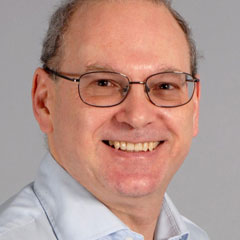Richard Cookson, Professor, Centre for Health Economics
Richard’s research focuses on equity in health and health care and he has co-chaired various international working groups on equity.

email: richard.cookson
Our 60-second interview with Richard:
What do you do in the field of mental health?
I am helping to develop a new approach to long-term modelling for adolescent mental health and wellbeing research. Using the UK's amazing birth cohort datasets, we will develop a computer programme that simulates how adolescent mental health problems develop from age 11 to 17, their childhood origins from age 0 to 11, and their long-term consequences in adulthood. We will show how this can be used and re-used for various purposes - including long-term evaluation of the "Learning Together" approach to improving mental health that was recently trialled in secondary schools, evaluating the long-term impacts on adolescent mental health of tax-benefit reforms to reduce early childhood poverty, and estimating the long-term consequences of adolescent mental health problems for different kinds of adolescents in different circumstances, in terms of income, health, wellbeing and public cost in adulthood.
What do you find most rewarding and inspiring in this work?
I've always been inspired by the geeky academic ideal of trying to use reason and evidence to help improve people's lives. Adolescent mental health and wellbeing is a fascinating topic, fundamentally important to improving people's lives, and poorly understood. It also fits my wider agenda of health inequality research, since adolescent mental health problems are a crucial driver of health inequality in later life. I enjoy the geeky stuff (the birth cohort datasets, the theories of childhood development, the computer programming) and also enjoy talking to practitioners, decision makers and young people themselves and trying to make this geeky stuff useful to them.
What is the most challenging or complicated aspect of this work?
This is essentially a work of knowledge synthesis, in bringing together all sorts of different pieces of interdisciplinary theory and data into a reasonably coherent overall framework. So the most challenging element is also one of the most rewarding elements - the chance to work with interesting people from different disciplines with expertise in different pieces of the puzzle.
What impact do you hope your work is having- or can potentially have?
I hope it will help improve understanding of what interventions in what policy sectors work best in the long-term to improve mental health and wellbeing, for what kinds of children in what circumstances - allowing more effective and joined-up approaches across the whole of government. By piecing together diverse sources of theory and data, I also hope it will improve our big picture understanding of the long-run causes and consequences of adolescent health and wellbeing problems.
Could you share with us one piece of advice that you follow for your own mental health?
Great question and I look forward to reading other people's answers! I'm not sure - though I suspect other people are crucial; without the kindness of family, friends, colleagues and indeed strangers my mental health would be in tatters. So one corny old piece of advice, which I will make my new year's resolution, is to be kind to other people - you never know, they might then be kind to you!
And since my so-called 60 second interview has, inevitably, taken up far more than 60 seconds, here's another free piece of advice that I should take myself - talk less and listen more!